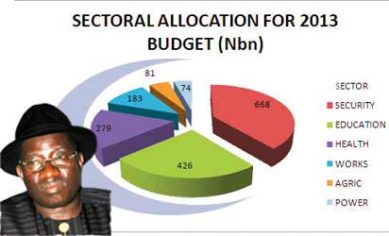National Issues
How to better the Nigerian economy: A philosophical debate between the Federal Government and the Nigerian Masses.

The federal government for too long in there various dispensations, have been operating in what the masses see and refer to as isolational government -a government that care less of what the masses need but more of what the wealthy people in government needs. Today, the debate that we are going to be having, will be centered on engaging the government on what to do in order to up the economic life of an ordinary Nigerian, which will indirectly better the economic condition of the country.
The settings of this debate allows a representation from the Nigerian masses(which is me), and wheeled the government not to make any contribution but to observe and implement the propositions.
In as much as there are diverse applications of this principles, our base-line of projection is on three major issues: Budget cut, tax reform and implementation, which will in reverse, bring to a boost in areas such as education, infrastructure, clean energy etc. My first big ball is by answering the question on what specifically we should do and what specifically we can cut in order to make this all add-up.
Right now we are faced with some critical moments where we have to make some critical decisions, how to up the economy over a short term while making preparations to balance the odd over a long term period. In the short term, both PDP, ACN, ANPP, CPC, APGA and the other political parties will have to agree on what sum they are willing to generate over the next 2 years, say 5 trillion Naira.
Now that i know sure sounds like a lot of money, but its doable, if we do it in a balanced way. What the Nigerian masses are proposing is that about 2.5 trillion Naira over the next 1 year, should come from reduction in government spending. There are things that government officials do that they can’t afford not to do, there are some things that are fun to do but they just can’t afford them right now.
Lets quickly take a look at the 2013 budget for Nigeria, 4.92 trillion Naira. Where education, Defence and police were allocated the highest share of N1.95 trillion. A breakdown of the N1.95 trillion shows education sector getting N426.53 billion Defence -N348.91 billion and Police -N319.65 billion. It is of paramount importance not to forget that the Mr President said that N2.41 trillion is earmarked for “recurrent” expenditure, and N1.54 trillion for capital expenditures. While the sum of N380.02 billion is allocated to Statutory Transfers and then N591.76 billion for Debt Service.
The 2013 budget is about 5% more than that of 2012 which falls on the mat of N4.7 trillion. The breakdown of the entire budget says:
Power – N74.26 billion
Education – N426.53 billion
Health – N279.23 billion
Defence -N348.91 billion
Police -N319.65 billion
Agriculture and Rural Development – N81.41 billion
In order not to ruin the proposition of the Nigerian masses, i will not delve into the implications of the released budget else, we know that if N2.41 trillion is earmarked for “recurrent” expenditure (expenditures like National Assembly’s allowances etc), then the presumable total sum of the 2013 budget is N1.54 trillion. But lets leave that aside for now!
Having said that, the first option is to make cut almost in every area. A good example is the National Assembly’s spending. The Senators and Honourable members often times stuff-in resultless seatings that has little or not relevance, just for them to get seating allowances. So the Nigerian masses are proposing a cut in all governmental allowances to about 2 trillion Naira, allowing more spending on security as well as defence issues.
And then what we’ve said is, lets take another trillion through a reform in tax system that allows people like Mr President and big entrepreneurs in the likes of dangote, capital oil etc., for paying more in taxes. Right now what we’ve seen is that the economy is booming but only on the side of wealthy people so, technically speaking, the economy is down. Because when the wind that blows only reaches a few people, the majority of others who did not feel the impact of such wind sees it never happened.
If we can make a trillion Naira on revenue, 2 trillion in cutting spending, we can still make investments in basic research, we can make investments on energy(clean energy), so that we can figure out what are the next break-through technology that can help us reduce our reliance on foster fuels. We can still make investments in education, so that more young people can go to universities. We can still rebuild our roads, our bridges, invest in the next generation of broadband and wireless technology and make sure that every body has access to the Internet. Channel them in rebuilding our refineries so we can refine our own crude oils. Invest in healthcare. We can do all these things while still bringing down the deficit in medium term.
We spend 20% more on power and security than any country in the world and have worst outcomes, because we end up losing it in the pockets of those responsible for channeling it to the appropriate quarters without consequences.
If the government will scripturally follow this proposal, we can in a short term, reshape the very nature of our economic system for the betterment of both the rich and the poor.

















